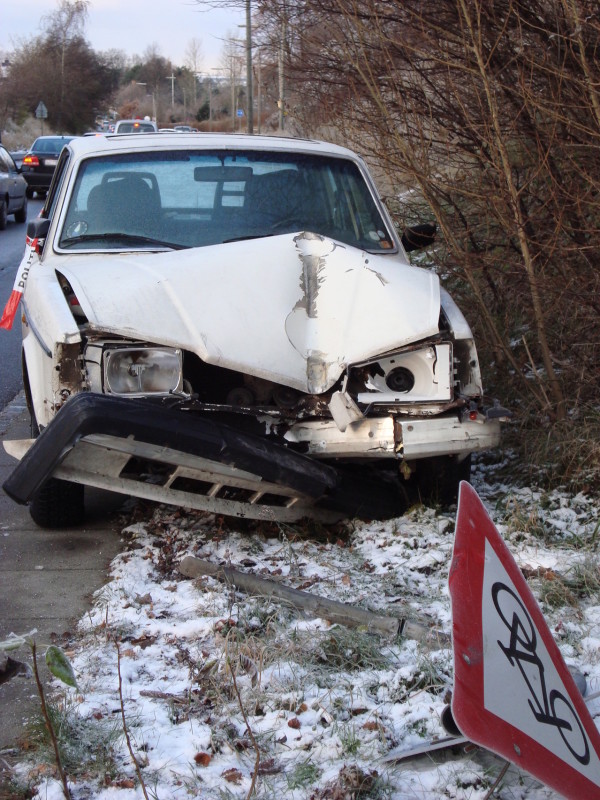- March 22, 2017
- Posted by: Liam Dai
- Category: Uncategorized

Involved in a Car Accident That’s NOT Your Fault? Here’s What to Do (Part Two)
In the last article, we discussed what to do after an accident occurs that is another driver’s fault. In Part Two, we’ll highlight some other tips to follow to recoup all of your damages as smoothly as possible.
Out of Work?
In addition to paying your medical bills and vehicle repair costs, you are also entitled to lost wages if you cannot reasonably go back to work. However, their policy will have a limit to how much you can recoup. If the driver’s liability policy’s limits are too low to cover all of your lost wages, your own insurer’s uninsured motorist coverage (or PIP coverage—see below) will make up the limits of your lost wages.
Totaled?
If your vehicle is wrecked beyond repair (known as “totaling”), the at-fault driver’s insurance is required to pay you the actual cash value before the accident. This amount also includes the amount of sales tax, too, so be certain you receive what you deserve.
What’s a PIP?
Some states require you to purchase what is known as personal injury protection (PIP). This type of coverage pays for your lost wages and injuries, even if you’re not to blame for the accident. The co-payment and/or deductible may be due when you recoup using your PIP coverage.
As of 2016, twelve states (and Puerto Rico) have no-fault insurance laws related to PIP:
- Florida
- Hawaii
- Kansas
- Kentucky
- Massachusetts
- Michigan
- Minnesota
- New Jersey
- New York
- North Dakota
- Pennsylvania
- Utah
Contacting your insurance advisor to determine if you have the proper coverage BEFORE an accident occurs can help relieve uncertainty about your insurance needs.
Renting Within Reason
As the victim of an accident caused by another, you are also entitled to a rental car in the interim of your car’s repair. However, this does not give you carte blanche to rent the most expensive vehicle; renting expensive vehicles may cause conflict with your claim. As a rule of thumb, try to rent a car as similar to your previous one as possible.
Also, if you have pre-existing collision coverage that extends to rental cars under your own policy, don’t purchase a collision damage waiver from the rental company.
Finally, if you feel that you’re being shortchanged by the at-fault’s insurer, asked that they put their reason in writing. Insurers are required by law to inform you of their decision, which may help your legal case for possible lawsuits.
Knowing What You’re Entitled To
Every state has its own laws (known as ”prompt-payment law”) to determine what would happen if you are involved in an accident that’s not your fault. If you feel like you’re not getting what you deserve from the insurer (yours included), be sure to research your state’s law– some states specify a time frame while others are more ambiguous. Knowing your rights can help you settle your claim as fast as possible.
Matter-of-Fact Letter
As we mentioned in the first article, contacting the insurance company of the at-fault person is essential to getting your claim settled. In addition to getting written authorization and other documents from the insurer, submitting a matter-of-fact letter is another that protection legally. Informing the insured that you expected to cover all your reasonable costs allows for less confusion about your intentions regarding your claim.
* * *
This concludes our short guide on what to do when you’re involved in a car accident is not your fault. However, is only scratching the service of a larger topic. Having an insurance advisor working on your behalf can help resolve your claim quicker than if you would do-it-yourself. Contact an advisor at RiskBlock today to ensure that should an accident occur, you can focus on getting well, not getting your claim settled.
